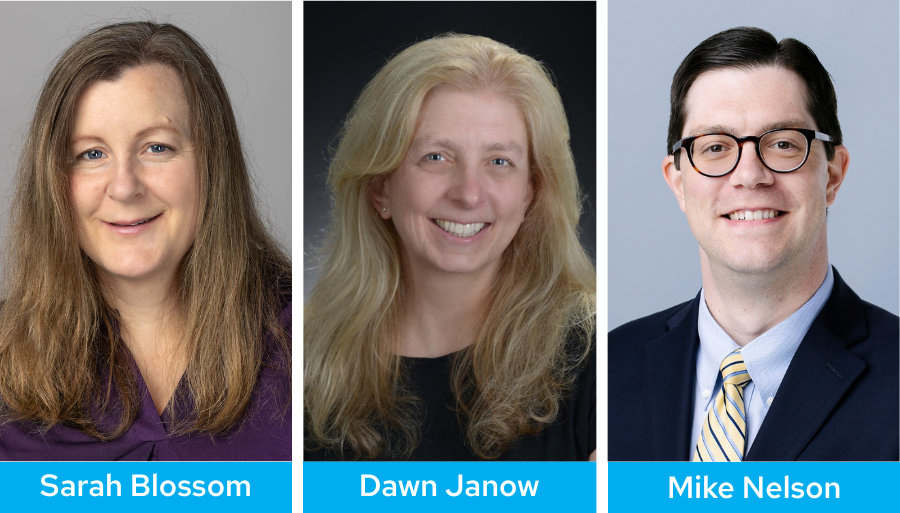The primary election for Bainbridge Island City Council is August 5, 2025. Are you ready?
As a 501(c)(3), HRB can’t endorse a candidate, but we can help you understand where the candidates stand on housing and how they propose to address the affordability crisis. HRB reached out with three questions. We’ve published their responses below exactly as they came to us. (Check out our glossary of key housing terms for help in understanding the candidates’ policy recommendations.)
Only three candidates will appear on the primary ballot. Here’s why:
City Council has seven members: two from each of three wards (north, south, and central) who run on staggered four-year terms and one at-large member who represents the entire island. In the November general election, voters choose between two candidates for each of the positions. But in the primary, they vote only for the position in the ward where they live and for the at-large position, if up for election.
This year, three of the six ward positions are up for election while the at-large position is not. Only two candidates are running for the north and central wards, so there is no need for a primary. The south ward, however, has three candidates. They are participating in the primary and received the HRB questionnaire.
Get to know them now, even if you don’t live in the south ward because two of them will advance to the general election. To prepare voters for this election, HRB will host an affordable housing forum at the library with the final six candidates on October 20. Look for event details in early fall.
 Describe your experience and qualifications that specifically prepare you to address our affordable housing crisis on Bainbridge Island.
Describe your experience and qualifications that specifically prepare you to address our affordable housing crisis on Bainbridge Island.
During my time on both City Council and the Planning Commission, I have been involved in four major affordable housing initiatives: the Housing Design Demonstration Project (HDDP) code, the City-owned Suzuki property, bonus density for properties owned by religious organizations, and ongoing updates to the Comprehensive Plan and Winslow Subarea Plan.
The HDDP has enabled projects like Ferncliff Village and Ericksen Community. I’ve consistently supported its continuation, even as it faced several sunset clauses. In 2018, as a Councilmember, I introduced a successful motion to allow 100% affordable projects to continue under the HDDP, despite a recommendation to suspend it. In 2021, as a Planning Commissioner, I supported amendments to simplify its site design requirements.
While on Council, I was a Council liaison to the Affordable Housing Task Force and was a strong advocate for affordable housing on the City-owned Suzuki property. My views on the Suzuki property have since evolved, and I now believe other locations would be more suitable.
On the Planning Commission, I helped advance an ordinance allowing churches to develop affordable housing. This supported Bethany Lutheran’s long-standing plan to build what is now proposed as Finch Green.
I’m currently gaining direct experience with new state-mandated affordable housing requirements through the Comprehensive Plan and Winslow Subarea Plan updates. While I do not support the approach recommended by staff and consultants, I remain committed to supporting effective and equitable solutions that advance affordable housing on Bainbridge Island.
There is no debating it—Bainbridge Island doesn’t have enough affordable housing. What do you think contributes to this shortage? What do you think needs to change in order to address these challenges?
Several key factors drive the affordable housing shortage—most notably the high cost of construction, expensive land, and limited financial resources for subsidizing affordable housing development. Of these, construction costs are the most significant and, aside from permit fees and processing times, largely outside the City Council’s control. The City’s own experience with the 625 Winslow project and past concepts like Suzuki show that even when land is donated, construction costs far exceed what can be recouped through affordable rents or sales. Similarly, land costs are mostly beyond the City’s influence.
I do not subscribe to the belief that changing our land use policies can overcome those first two factors. We can’t increase our density to the extent needed to make tools like Inclusionary Zoning feasible without straining our existing road network, exceeding sewer capacity, and raising concerns about the sustainability of our aquifers. At a certain point, additional growth would demand significant infrastructure investment—potentially increasing costs for current residents and even causing displacement. I also remain unconvinced that simply building more housing will meaningfully or sustainably reduce costs over time.
While land use tools like the Housing Design Demonstration Project (HDDP) are important and should remain available, we must look beyond zoning and density changes for durable, equitable solutions to our affordable housing challenges.
You are seeking a City Council seat. If elected, how do you understand your role in addressing our affordable housing crisis?
If there’s one clear takeaway from the Comprehensive Plan and Winslow Subarea Plan update process, it’s that creating housing for households earning 80% of Area Median Income (AMI) or below is extremely challenging. It has become clear that market-rate, for-profit developers—even with incentives—are not able to deliver the deeply affordable housing our community needs.
This underscores the importance of the City forming strong partnerships with community organizations such as Housing Resources Bainbridge. I remain hopeful that, with the continued generosity of individuals and institutions like Bethany Lutheran, new opportunities for affordable housing will emerge. But to realize these opportunities—particularly for our lowest-income residents—the City must actively provide support.
When a faith-based organization like Bethany Lutheran seeks to use state law allowing added density for affordable housing, the City should do everything it can to facilitate that effort. In addition, the City must take full advantage of available funding sources, including allocating portions of the lodging tax, to help make affordable housing projects viable.
At this time, without a clear understanding of the potential impact, I do not support a housing levy or bond funded through an increase in property taxes. However, the City must explore all available funding sources and consider how it might leverage other assets to partner with organizations like LIHI on projects similar to 625 Winslow.
 Describe your experience and qualifications that specifically prepare you to address our affordable housing crisis on Bainbridge Island.
Describe your experience and qualifications that specifically prepare you to address our affordable housing crisis on Bainbridge Island.
Affordable housing is not just about policy, it’s about people. My qualifications are rooted in collaborative, results-driven leadership across sectors. Housing solutions must meet people where they are. I’ve worked on Park policies with equity and environmental sustainability in mind, ensuring our spaces and communities support diverse needs while respecting our natural resources.
Through my community work, I’ve seen the urgent need for safe, stable housing: for those escaping unsafe situations, facing sudden income loss, low-wages or being priced out. I’ve taken personal direct action to secure housing in each of these situations and understand the range of challenges firsthand.
In 2021, as Park Commissioner, I initiated an interagency group to address affordability and sustainability. I envisioned collaboration between Parks, Schools, Land Trust, Parks Foundation, Helpline House, BI Chamber, Bainbridge Community Foundation, and more. That group officially formed under Housing Resources Bainbridge (HRB), bringing education, advocacy, and interagency coordination to the Housing Action Plan.
I’ve been a strong public advocate for HRB’s affordable housing projects—including voicing support for Wintergreen Townhomes (31 permanently affordable homes) and urging policy adoption for the Finch Green project at Bethany Lutheran Church (22 additional units).
With two decades of elected and volunteer leadership in arts, schools, sports, and parks, I’ve built trusted relationships and understand how to activate cross-sector coordination. Addressing Bainbridge’s housing crisis demands bold collaboration, political courage, and long-term vision—and I bring all three to the table.
There is no debating it—Bainbridge Island doesn’t have enough affordable housing. What do you think contributes to this shortage? What do you think needs to change in order to address these challenges?
True, Bainbridge does not have enough affordable housing. High land and construction costs, zoning, limited public transit, Island-life desirability, and protection of our natural resources, are some of the factors contributing to housing inventory shortages and soaring prices. With median home prices around $1.24 million and rents averaging $2,875, housing is unattainable for many people who make our community vibrant—teachers, healthcare workers, artists, small business owners, seniors, young families and more.
Solving this requires a multi-pronged approach that’s both creative and practical, using both short- and long-term goals. While zoning reform, planning and development play a long-term role, we have more immediate tools to help alleviate the housing crisis while limiting environmental impact. I am looking for creative ways to utilize our existing home inventory. To that end, I support expanding and incentivizing ADUs, incentivizing long-term rentals, rehabilitating existing dilapidated structures, and growing shared housing options.
We must also consider the broader cost of living and look at ways to help ensure people are not priced out of homes they already live in. Expanding public transportation and bicycle/walking options can reduce household expenses, improve access to work and services, and make it more viable for people across income levels to live here – all while maintaining our unique character and natural resources.
Without housing options for all income levels, Bainbridge risks losing the diversity and character that define it. I will work to bring compassion, creativity, and community voices to craft policies and solutions to improve conditions for viable for housing island-wide.
You are seeking a City Council seat. If elected, how do you understand your role in addressing our affordable housing crisis?
I understand the City Councilor role to create conditions for affordability on Bainbridge, not just putting people in homes, but making life, less financially stressful for all Island residents. We need a diverse housing inventory at both the low- and middle-income levels -otherwise we risk hollowing out our community. I hear from people every day for whom home ownership and viable rent is unattainable and stressful. The City needs to be responsive to its people, not simply number studies.
I support policies that increase ADUs, green building, inclusionary zoning and repurposing dilapidating dwellings. I encourage the City to use its Housing Trust Fund proactively – and continue a strong partnership with HRB and other organizations to support current projects that get people into homes now, not years down the line.
And it is not just about low-income housing; I will work to improve options for middle-income folks too. We need to consider need based on current Bainbridge people and the high cost of living, not simply on surveys and statistics that diminish people to their wages. We can help affordability for all by limiting tax and utility rate increases, avoiding unnecessary burdens on small businesses, and aligning City efforts with other public agencies to reduce redundancy and stretch resources. If elected to Council, I will work for the people on Bainbridge and reflect their voices, concerns and complex and unique housing challenges. I have proven community leadership and the ability to get things done.
 Describe your experience and qualifications that specifically prepare you to address our affordable housing crisis on Bainbridge Island.
Describe your experience and qualifications that specifically prepare you to address our affordable housing crisis on Bainbridge Island.
I am an attorney by training and a dedicated public servant who has spent my career serving the people of Washington as a state employee. Despite my education and training, I have also struggled with housing affordability over the course of my life. My family was not well off, which is part of the reason I was awarded a Washington Promise Scholarship to attend the University of Washington. My academics were strong, but my family’s financial situation was not. I have moved more than 25 times during my life, and despite my hard work, I wasn’t able to afford to buy my first home until I was almost 40 years old. I understand the stability affordable and stable housing offers, and I sympathize with the struggles of so many people across our state to afford housing. I believe my personal experience with housing affordability gives me strong insight into the seriousness of this issue.
There is no debating it—Bainbridge Island doesn’t have enough affordable housing. What do you think contributes to this shortage? What do you think needs to change in order to address these challenges?
I think the most important thing that needs to change is the City Council’s lack of honesty and transparency with the public around this issue. Right now, the City Council and the Planning Commission are pushing a plan to massively upzone Winslow and the surrounding area, and they are trying to sell this plan as a solution to the affordable housing crisis. This is disingenuous. Councilmember Kirsten Hytopoulos has been the only City Council member to honestly point out that this plan will not lead to any meaningful amount of affordable housing. The Planning Commission’s own consultant told the Planning Commission that if we want to build any meaningful amount of affordable housing, we need to do it ourselves.
We need new ideas, and we need to change the conversation around affordable housing. For instance, why are we relying on developers to build affordable housing? Why aren’t we partnering directly with Housing Resources Bainbridge to get this done?
I am also concerned that the conversation around affordable housing often focuses too much on rental units and not enough on homeownership. I would like to see a shift towards policies that make homeownership easier, such as down-payment assistance, $0 down home loans, and longer-term home loans (such as 40- or 50-year mortgages) that can bring monthly payments down. One of the largest sources of wealth generation in our society is homeownership, and it saddens me to see homeownership out of reach for so many.
You are seeking a City Council seat. If elected, how do you understand your role in addressing our affordable housing crisis?
The City Council is at the forefront of addressing our affordable housing crisis because the City Council sets the City’s housing policies and priorities. If I am elected, I would seek answers to the following questions to inform sensible affordable housing policies:
- Why aren’t we partnering directly with Housing Resources Bainbridge who has shovel-ready projects ready to go?
- Why aren’t we pushing for more accessory dwelling units (ADUs)? This could be a less expensive way to produce more affordable housing.
- Why aren’t we taking advantage of the transfer of development rights (TDR) program that already exists in the municipal code? This could be a good way to improve housing affordability for those that are on a fixed income and want to stay in their homes.
- Could we create a preference for awarding affordable housing units to those that already work on Bainbridge Island? Currently, 79% of those that work on Bainbridge Island don’t live on Bainbridge Island, often because they can’t afford to.
- Could we add an asset test in addition to an income test for affordable housing eligibility? That way, we can ensure that the affordable housing units are going to those who truly need them, such as Bainbridge Island workers.
